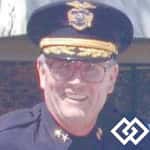Police Officer Kills Civilian With Unjust Use Of Force
Updated on
Case Overview
This case involves a 29-year-old woman who was pulled over by a police officer for outstanding parking violations. The officer asked the driver to pop her truck, to which the driver complied. The officer then asked the driver to get out of the car. When she refused, the officer opened the driver’s side door and reached for his gun. Reacting out of fear, the driver turned her car on and accelerated away. The officer then drew his gun and began to fire as the driver drove off. The officer shot the driver in the back of the head killing her on the spot. An expert in police protocols was sought to review the case and opine on whether the officer’s use of deadly force was justified.
Questions to the Law Enforcement expert and their responses
Please describe your experience in supervising and training police officers on the use of deadly force.
I'm a career police officer with 47 total years in the field. I have held positions as a sergeant, lieutenant, captain, and chief of police. 26 years of my career were spent as the chief of police. Annual in-service refresher training on the use of force is a must. Particularly, refresher training on what we call, Stress Inoculation Training, where officers are put into live-simulated scenarios and trained so that they can make good decisions during stressful encounters, should be mandated as well. These skills are considered perishable skills, and we need to make sure that officers do not lose any of these skills. Whenever things go south for a police officer, it is inevitably due to poor training, poor supervision and/or poor judgment. This case sounds very much like a combination of poor training and poor judgment.
What factors are police officers trained to consider when deciding to use deadly force against an individual?
Police officers should be trained that they can only use lethal force on someone if they have a reasonable belief their lives are in imminent danger or they are in imminent danger of receiving serious bodily injury. Firing into or at a moving vehicle or from a moving vehicle should be prohibited by a department's policies, procedures, and rules. Officers should not be reaching into or holding onto a vehicle. If the driver starts to drive away, the officer should simply disengage from the situation, get back into his or her police vehicle, call in the cavalry, and initiate a traffic stop. If the stop does not succeed, it will evolve into a police pursuit and that then raises a question as to whether or not the pursuit should continue given a variety of factors (e.g. charges, road conditions, traffic, ability to apprehend the subject at a later date, etc.).
About the expert
This highly qualified expert has over 50 years of experience in law enforcement. He received an AS in Law Enforcement from West Valley College, a BS in Law Enforcement from Metropolitan State College, and an MS in Criminal Justice Administration from the University of Colorado. Certified as a Police Executive and a Force Science Analyst by the Force Science Institute at Minnesota State University, he previously served as President of the Colorado Association of Chiefs of Police. He was also the Police Sergeant for the Los Gatos Police Department and then Chief of Police in Westminster, Colorado. In addition, he worked as Interim Chief of Police in Lochbuie, Colorado. He has served as a police practice consultant in various states including California, Georgia, Utah, and New York. He is currently the Owner and CEO of his own police practices consulting firm.

E-008178
Specialties:
Subscribe to our newsletter
Join our newsletter to stay up to date on legal news, insights and product updates from Expert Institute.
Sign up nowFind an expert witness near you
What State is your case in?
Subscribe to our newsletter
Join our newsletter to stay up to date on legal news, insights and product updates from Expert Institute.

